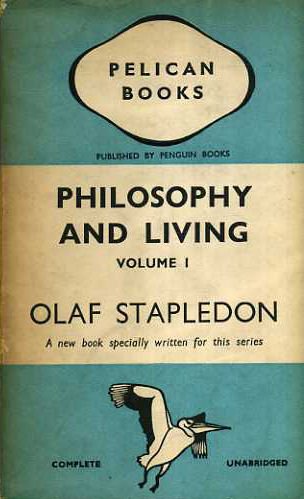Philosophy as a Guide to Living (Audiobook) | Date: 11 April 2011, 15:00
|
[b]Is there meaning in human life?[/b]
All of us have asked ourselves this question. But for philosophers through the ages, it was the first question of many, for they needed to know whether such a question was even answerable by philosophy. And if it was, they needed to ask whether any positive answer could be pursued through the practice of philosophy itself.
Today, these questions remain as timely and controversial as ever. But following the pathway of proposed answers on anything other than a level surface—no matter how fascinating we find the subject—can often be difficult for those untrained in philosophy and the profound rigor of its arguments and language.
[b]Provocative, Accessible Lectures[/b]
What a delight, then, to be able to offer Professor Stephen A. Erickson's Philosophy as a Guide to Living—a thoughtful, stimulating, and most important, accessible discussion of how some of the greatest minds of the past three centuries have pondered why we are here and what journey we might be on.
It's a chance for you to take your own journey, as Professor Erickson guides you along the intellectual road traveled by post-Enlightenment thinkers such as Kant, Hegel, Schopenhauer, and other European philosophers. These ideas persist to the present day, as contemporary philosophers have taken up the intellectual route so irresistible to the likes of later intellectuals—Marx, Kierkegaard, Nietzsche, Freud, Heidegger, Sartre, Camus, Foucault, and Habermas.
Each one, says Professor Erickson, "speaks in important ways to the time in which we now find ourselves. They are concerned with exploring the limits of human reason and are focused on the likely course of history. These philosophers tend also to pay close attention to our lives in the world, enmeshed in culture and questing after significant opportunities for self-understanding and personal development."
Most important, you can comprehend what each has to say equipped with your own intellect, curiosity, and fascination with the course's central question. Professor Erickson has designed a course that requires no prior background in philosophy and avoids the often-intimidating language in which serious philosophy can be expressed. And he has done so without diminishing the extraordinary intellectual depth that each of the philosophers included here bring to the debate.
Anyone who has ever studied philosophy at length will understand what a remarkable achievement this course is. From his first lecture, when he removes any threat of confusion about the "axial model of understanding"—one of the few technical terms used in these lectures—it is clear that this is a different kind of philosophy course. Professor Erickson clearly explains that the term is the basic model of understanding life that has dominated philosophical and religious thinking in the West for 3,000 years—the idea that life is a process or journey between two different orders: from darkness to light, from bondage to liberation, from experiencing the world's appearance to understanding its reality.
[hide=Course Lecture Titles][list][*] 1. The Axial Model
[*] 2. Kant’s Hopeful Program
[*] 3. The Kantian Legacy
[*] 4. Kant and the Romantic Reaction
[*] 5. Hegel on the Human Spirit
[*] 6. Hegel on State and Society
[*] 7. Hegel on Selfhood and Human Identity
[*] 8. Schopenhauer’s Pessimism
[*] 9. Schopenhauer’s Remedies
[*] 10. Alienation in Marx
[*] 11. Marx’s Utopian Hope
[*] 12. Kierkegaard’s Crises
[*] 13. Kierkegaard’s Passion
[*] 14. Why God Died—Nietzsche’s Claim
[*] 15. Nietzsche’s Dream
[*] 16. Freud’s Nightmare
[*] 17. Freud on Our Origins
[*] 18. Psychoanalytic Visions in and after Freud
[*] 19. Heidegger on the Meaning of Meaning
[*] 20. Heidegger on Technology’s Threat
[*] 21. Heidegger’s Politics and Legacy
[*] 22. The Human Situation—Sartre and Camus
[*] 23. Power and Reason—Foucault and Habermas
[*] 24. Today’s Provocative Landscape—Thresholding
[/list][/hide]
|
DISCLAIMER:
This site does not store Philosophy as a Guide to Living (Audiobook) on its server. We only index and link to Philosophy as a Guide to Living (Audiobook) provided by other sites. Please contact the content providers to delete Philosophy as a Guide to Living (Audiobook) if any and email us, we'll remove relevant links or contents immediately.
|
 |
|
 Comments (0)
All
Comments (0)
All




